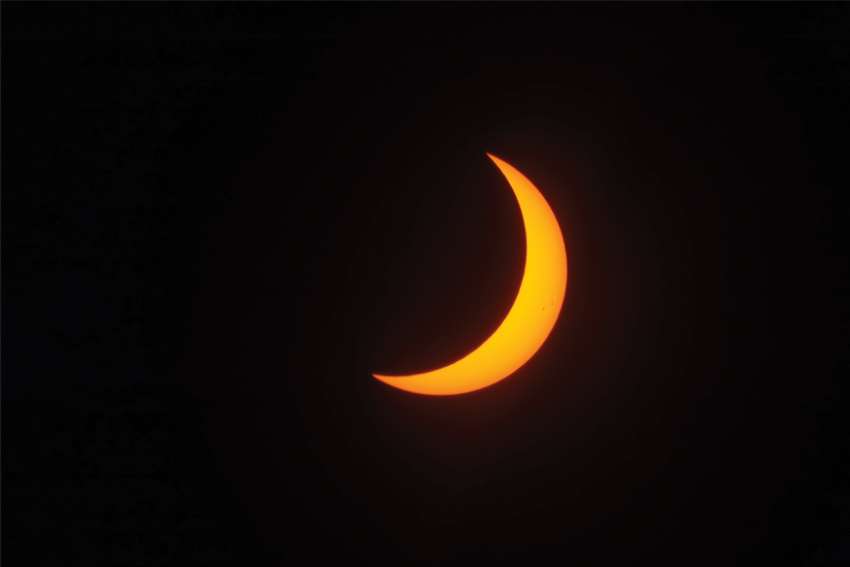The ever-so-slightly shifting alignment of the sun and moon relative to the Earth and to modern calendars explains why Christians themselves celebrate Easter on different dates most years and why the Jewish feast of Passover and the Christian celebration of Easter seldom coincide.
This year, the Jewish community celebrates Passover from the evening of March 27 to April 4. Easter for most Western Christians is April 4, but for many Eastern Christians — both Orthodox and Eastern Catholic — it is May 2.
Different Christian communities celebrated Easter on different days until the Council of Nicaea in 325 decided that for the unity of the Christian community and its witness, Easter would be celebrated on the first Sunday after the first full moon after the spring equinox.
But the Julian calendar, which is what Christians used in the fourth century, was a tad out of sync with the actual solar year, so March 21 — generally assumed to be the date of the northern hemisphere’s spring equinox — gradually “drifted” away from the actual equinox.
In 1582, Pope Gregory XIII, relying on the work of the best astronomers of his time, reformed the calendar, dropping 10 days and making the equinox fall on March 21 again.
The development of the Gregorian calendar was not primarily about being more accurate scientifically, it was to ensure the early spring celebration of Easter, the centre of the Christian faith.
The Pontifical Council for Promoting Christian Unity and the World Council of Churches already are discussing ways to celebrate the 1,700th anniversary of the Council of Nicaea in 2025. Orthodox Archbishop Job of Telmessos, the representative of the Ecumenical Patriarchate of Constantinople to the World Council of Churches, proposed something concrete: honouring the Council of Nicaea’s efforts to set a common date for Easter by setting a common date for Easter.
Bishop Brian Farrell, secretary of the pontifical council, already is working with other church leaders to prepare for the Nicene anniversary. A common date for Easter should be part of the discussions, he said.
“It would be a great thing if all Christians, on the same day, celebrated the fundamental truth of our faith,” said Farrell. “That would be hugely important.”
As an appendix to Vatican II’s 1963 Constitution on the Sacred Liturgy, the Vatican issued a declaration “on revision of the calendar,” if other Christians would.
Several attempts, almost always led by Orthodox bishops, have been made over the past 100 years to push for a common date for Easter. It seems most Christians agree in principle but picking the date or the calendar or the formula has been elusive.
At a 1997 consultation in Aleppo, Syria, representatives from all the major Christian churches recommended maintaining the Nicaea formula of Easter on the Sunday after the first vernal full moon, but said, “the astronomical data” — the vernal equinox and the full moon — should be calculated using “the most accurate possible scientific means” and using “the meridian of Jerusalem, the place of Christ’s death and resurrection,” as the basis for the calculation.
In fact, the vernal equinox that marks the official start of spring in the northern hemisphere is not a whole day, but a specific time that occurs between March 19 and March 21, depending where the observation is made.


